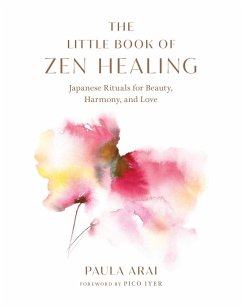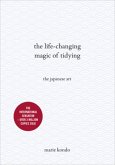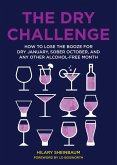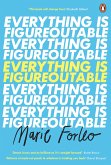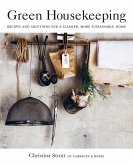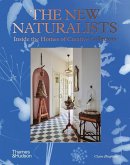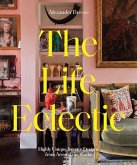Accessible and adaptable Japanese Buddhist rituals to infuse your life with purpose, healing, and gratitude when you need it most.
How do we make and sustain meaning amidst the messy conditions of daily life? Personalized rituals can help us blossom like lotuses right in the mud of the present. On a pilgrimage she began after her mother s death, author Paula Arai encountered numerous Japanese Buddhists who taught her the remarkable power of ritual to heal practices you can adapt to your own cultural and personal circumstances. Applying principles of Zen practice, she offers stories and insights that illuminate how to nourish and reap a healing bounty of connection, joy, and compassion. Examples include how to:
Relate to a late loved one as a personal Buddha who supports you Create a home altar to serve as a safe space to be vulnerable, face intense emotions, and experience a depth of warm gratitude that melts fear and anger Engage in daily tasks with attentiveness, intention, and creativity such that they become opportunities for body-mind integration Develop family rituals to celebrate relationship and mark transition Approach illness and grief with a purposeful sense of connection to life-and-death in its wholeness
Like Marie Kondo's Shinto principles for decluttering, Paula Arai uses rituals influenced by Japanese Zen for personal and relational nourishment and spiritual healing.
How do we make and sustain meaning amidst the messy conditions of daily life? Personalized rituals can help us blossom like lotuses right in the mud of the present. On a pilgrimage she began after her mother s death, author Paula Arai encountered numerous Japanese Buddhists who taught her the remarkable power of ritual to heal practices you can adapt to your own cultural and personal circumstances. Applying principles of Zen practice, she offers stories and insights that illuminate how to nourish and reap a healing bounty of connection, joy, and compassion. Examples include how to:
Relate to a late loved one as a personal Buddha who supports you Create a home altar to serve as a safe space to be vulnerable, face intense emotions, and experience a depth of warm gratitude that melts fear and anger Engage in daily tasks with attentiveness, intention, and creativity such that they become opportunities for body-mind integration Develop family rituals to celebrate relationship and mark transition Approach illness and grief with a purposeful sense of connection to life-and-death in its wholeness
Like Marie Kondo's Shinto principles for decluttering, Paula Arai uses rituals influenced by Japanese Zen for personal and relational nourishment and spiritual healing.
This exquisite book is medicine for our time. It is a book that you will return to, again and again, for the profundity of its wisdom and practicality of its path.
Joan Halifax, author of Being with Dying and Standing at the Edge
Intimate, honest, revealing, caring listening and learning to heal. This is a book of revolutionary wisdom.
Kazuaki Tanahashi, author of Zen Chants
The Little Book of Zen Healing is a gift. In it, Paula Arai distills the wisdom, kindness, and care of our women ancestors into small yet empowering rituals we can practice in our lives to heal ourselves and those we love.
Ruth Ozeki, author of The Book of Form and Emptiness
Paula Arai has spent years, actually lifetimes, learning attentively from a generation of elderly Japanese women whose daily, hourly Zen practices infuse their lives and the lives of their families with quiet, invisible beauty, prayer, and awareness, imbuing small gestures with peace, equilibrium, and subtle, penetrating healing power. This book is alive with deep understanding, light, transformation, and secret joy.
Peter Sellars, opera, theater, film and festival director
After decades of important ethnographic study and spiritual practice in Japan, Paula Arai here presents us with a beautiful expression of the path of healing that has been the through-line of her life. To many, Zen means austere meditation and paradoxical sayings, but in this lovely book, full of brilliant stories and simple practices, Arai shows us that, more than this, Zen is a way of profound healing, and of beauty and harmony. I have long valued the ritual side of Zen practice, which Arai beautifully extends and develops. The Little Book of Zen Healing is an important book for Zen students . . . and everyone else.
Norman Fischer, author of When You Greet Me I Bow: Notes and Reflections from a Life in Zen
Arai s words inform us that healing occurs in the small silences and activities of our personal daily lives. She reminds us that it is not always necessary to enact rituals of religion in an effort to change. If we see life as a cosmic ceremony, then mindful attention to the everyday rituals of life has the potential to transform our personal and collective experiences of suffering. This book is a gift!
Zenju Earthlyn Manuel, author of The Shamanic Bones of Zen and The Deepest Peace
Paula Arai offers a tenfold Zen path to healing. A map to appreciating life and death just as it is. Enduring and timely rituals to alleviate our suffering.
Duncan Ry ken Williams, author of American Sutra: A Story of Faith and Freedom in the Second World War
This book is warming rays and quenching rain, fragrant tea and wholesome meal, shimmering brocade and hardworking tenugui cloth. Crafted with utmost care, it perfects the art of giving all that is beautiful, practical, and protective. Daily life is brimming with possibilities to enact healing rituals, Dr. Arai writes. The dancing words in these pages show us how, inviting us into a lineage of time-hewn wisdom and limitless love.
Chenxing Han, author of Be the Refuge and one long listening
Buddhist scholar and author Paula Arai s The Little Book of Zen Healing gently reorients the reader from the potential chaos of a difficult life, season, or task, to making meaning with the whole body-heart-mind. Whether our circumstances are mundane or tumultuous, Arai writes, ritual can be driven by thoughtful intent and engaging deepest love.
Lion s Roar
With deep reverence for the spirit of beauty and ritual practice, these personal reflections offer an adaptable road map on how to integrate grief into the quiet grooves of daily life.
Tricycle: The Buddhist Review
Joan Halifax, author of Being with Dying and Standing at the Edge
Intimate, honest, revealing, caring listening and learning to heal. This is a book of revolutionary wisdom.
Kazuaki Tanahashi, author of Zen Chants
The Little Book of Zen Healing is a gift. In it, Paula Arai distills the wisdom, kindness, and care of our women ancestors into small yet empowering rituals we can practice in our lives to heal ourselves and those we love.
Ruth Ozeki, author of The Book of Form and Emptiness
Paula Arai has spent years, actually lifetimes, learning attentively from a generation of elderly Japanese women whose daily, hourly Zen practices infuse their lives and the lives of their families with quiet, invisible beauty, prayer, and awareness, imbuing small gestures with peace, equilibrium, and subtle, penetrating healing power. This book is alive with deep understanding, light, transformation, and secret joy.
Peter Sellars, opera, theater, film and festival director
After decades of important ethnographic study and spiritual practice in Japan, Paula Arai here presents us with a beautiful expression of the path of healing that has been the through-line of her life. To many, Zen means austere meditation and paradoxical sayings, but in this lovely book, full of brilliant stories and simple practices, Arai shows us that, more than this, Zen is a way of profound healing, and of beauty and harmony. I have long valued the ritual side of Zen practice, which Arai beautifully extends and develops. The Little Book of Zen Healing is an important book for Zen students . . . and everyone else.
Norman Fischer, author of When You Greet Me I Bow: Notes and Reflections from a Life in Zen
Arai s words inform us that healing occurs in the small silences and activities of our personal daily lives. She reminds us that it is not always necessary to enact rituals of religion in an effort to change. If we see life as a cosmic ceremony, then mindful attention to the everyday rituals of life has the potential to transform our personal and collective experiences of suffering. This book is a gift!
Zenju Earthlyn Manuel, author of The Shamanic Bones of Zen and The Deepest Peace
Paula Arai offers a tenfold Zen path to healing. A map to appreciating life and death just as it is. Enduring and timely rituals to alleviate our suffering.
Duncan Ry ken Williams, author of American Sutra: A Story of Faith and Freedom in the Second World War
This book is warming rays and quenching rain, fragrant tea and wholesome meal, shimmering brocade and hardworking tenugui cloth. Crafted with utmost care, it perfects the art of giving all that is beautiful, practical, and protective. Daily life is brimming with possibilities to enact healing rituals, Dr. Arai writes. The dancing words in these pages show us how, inviting us into a lineage of time-hewn wisdom and limitless love.
Chenxing Han, author of Be the Refuge and one long listening
Buddhist scholar and author Paula Arai s The Little Book of Zen Healing gently reorients the reader from the potential chaos of a difficult life, season, or task, to making meaning with the whole body-heart-mind. Whether our circumstances are mundane or tumultuous, Arai writes, ritual can be driven by thoughtful intent and engaging deepest love.
Lion s Roar
With deep reverence for the spirit of beauty and ritual practice, these personal reflections offer an adaptable road map on how to integrate grief into the quiet grooves of daily life.
Tricycle: The Buddhist Review

